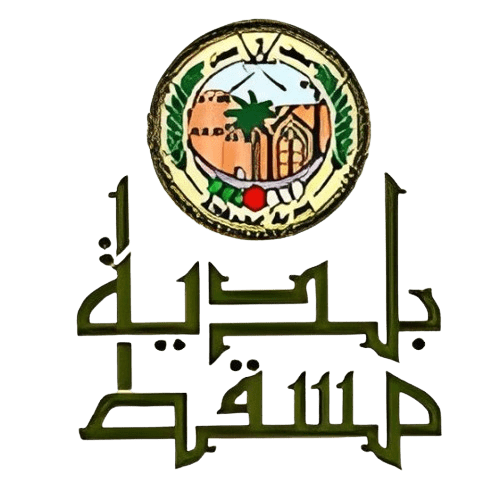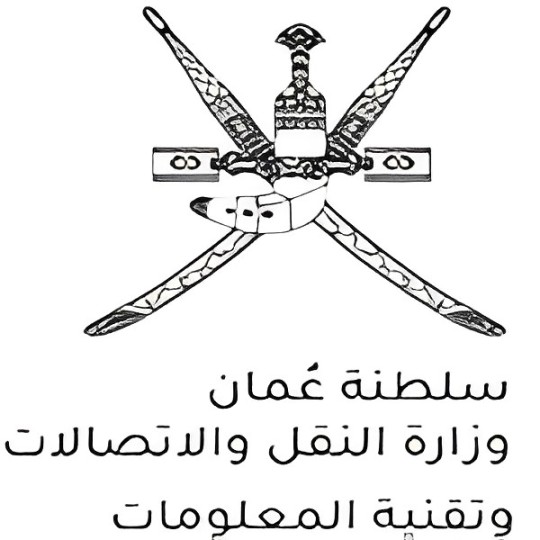+968 9596 3381
Phone Number
[email protected]
Email Address
Mon - Thu: 8:00 - 5:00
Online store always open
Phone Number
Email Address
Online store always open
WhatsApp Us Today
Drop Us an Email Today
Google Map Location
Saturday to Thursday

In today’s globalized economy, consistent and transparent financial reporting is paramount for businesses of all sizes. The Sultanate of Oman, a thriving hub for investment and trade, mandates adherence to international accounting standards, primarily the International Financial Reporting Standards (IFRS). However, within the IFRS framework, businesses face a critical choice: whether to adopt the comprehensive Full IFRS or the simplified IFRS for Small and Medium-sized Entities (SMEs).
This decision is not merely an accounting technicality; it impacts your operational efficiency, compliance burden, and overall financial strategy in Oman. Understanding the nuances between these two standards is crucial for new ventures undertaking company formation in Oman and existing businesses alike.
This comprehensive guide will demystify Full IFRS and IFRS for SMEs, highlight their key differences, and provide a decision matrix to help you determine which standard is the optimal fit for your business in the Omani context. Setup in Oman works closely with expert accounting partners to ensure your financial reporting aligns with regulatory requirements and supports your strategic goals.
Oman has a strong commitment to international best practices in financial reporting. The Commercial Companies Law (Royal Decree 18/2019), along with regulations issued by the Capital Market Authority (CMA), largely mandates the application of International Financial Reporting Standards (IFRS). This ensures comparability and transparency for stakeholders, both local and international.
For businesses operating in Oman, preparing financial statements in accordance with the correct IFRS standard is a legal obligation. The choice between Full IFRS and IFRS for SMEs will dictate the complexity of your accounting processes, the level of detail in your financial disclosures, and ultimately, your reporting costs.
International Financial Reporting Standards (IFRS) are globally recognized accounting standards issued by the International Accounting Standards Board (IASB). Oman requires many businesses—especially larger companies and those in regulated sectors—to follow IFRS to ensure transparent and consistent financial statements.
Highly detailed disclosure requirements
Frequent updates from IASB
Complex treatment of financial instruments, leases, revenue recognition, etc.
Suitable for public interest entities, listed companies, large enterprises
IFRS for SMEs is a simplified version of full IFRS, specifically designed for small and medium-sized entities that do not have public accountability. It maintains core accounting principles while reducing complexity, making it easier and more cost-effective to implement.
Reduced disclosure requirements
Simplified standards for leases, financial instruments, and consolidation
No need for interim financial reports or segment reporting
Less frequent updates
| Feature | Full IFRS | IFRS for SMEs |
|---|---|---|
| Target Users | Public companies, large corporations | SMEs, non-listed businesses |
| Disclosure Requirements | Extensive | Limited |
| Fair Value Accounting | Widely applied | Restricted |
| Consolidation Rules | Mandatory for groups | Optional or exempt in some cases |
| Updates | Regular and complex | Less frequent |
| Cost of Compliance | High | Lower |
Oman mandates IFRS compliance for most companies registered with the Ministry of Commerce, Industry and Investment Promotion (MoCIIP). However, IFRS for SMEs is accepted for smaller companies that do not operate in regulated sectors such as:
Banking & Finance
Insurance
Oil & Gas
Publicly listed companies
All other private businesses may opt for IFRS for SMEs, provided their size and scope justify the exemption.
Choose full IFRS if:
You’re preparing for an IPO or listing on a stock exchange
Your business is subject to regulatory oversight
You work in capital-intensive industries
You have multinational investors or cross-border transactions
You require extensive disclosure for transparency
Opt for IFRS for SMEs if:
You are a small business or family-owned company
You are not listed or publicly accountable
Your financial reporting is mainly for internal stakeholders or local banks
You want to reduce compliance burden and costs
Your investors do not require full IFRS compliance
Simplifies financial reporting for small businesses
Saves time and compliance costs
Easier to understand and apply
Supports accurate decision-making with less complexity
Accepted by many local banks and authorities for financing and filings
May lack detailed disclosures expected by some investors
Not suitable for companies planning rapid expansion or IPO
Fewer tools and resources available compared to full IFRS
Requires periodic review to ensure it still meets your business’s needs
Businesses in Oman may need to transition to full IFRS if they:
Scale into regulated industries
Raise external capital from institutional investors
Expand internationally
Merge with or acquire companies using full IFRS
Transition involves:
Revisiting historical financials
Adjusting valuation models
Implementing robust internal controls
Re-training your accounting team
Licensed accounting firms in Oman assist with:
Assessing which framework suits your business
Preparing IFRS or IFRS for SMEs-compliant financial statements
Training your finance team
Assisting in audits and MoCIIP submissions
Guiding transitions between standards
Firms like BDO Oman, PKF Oman, and Moore Stephens Muscat specialize in this advisory.
Choosing full IFRS unnecessarily, increasing compliance burden
Using IFRS for SMEs without checking OTA or MoCIIP eligibility
Not updating policies as IASB changes standards
Assuming local GAAP or custom reporting is sufficient
Neglecting auditor input during framework selection




The choice largely hinges on whether your entity has “public accountability” and your strategic objectives. In Oman, the regulatory framework supports both.
When Full IFRS is Likely Required or Recommended in Oman:
Publicly Traded Entities: If your company’s shares or debt instruments are listed or traded on the Muscat Stock Exchange (MSX) or any other public market.
Financial Institutions: Banks, insurance companies, mutual funds, and other entities that hold assets in a fiduciary capacity for a broad group of outsiders.
Large Corporations with Complex Operations: Even if not publicly listed, very large private companies with intricate financial transactions, multiple international subsidiaries, or significant foreign investment may find Full IFRS more appropriate for accurate representation and consolidation.
Entities Planning Future Public Listing: If you anticipate going public in the future, starting with Full IFRS can ease the transition.
Demands from Major Investors/Lenders: Large institutional investors or international lenders might require financial statements prepared under Full IFRS.
When IFRS for SMEs is Likely Appropriate in Oman:
Private Small and Medium-sized Entities (SMEs): This is the core target group. If your company does not meet the definition of public accountability, IFRS for SMEs is a viable and often preferable option. This applies to many private Limited Liability Companies (LLCs) in Oman.
Cost-Benefit Analysis: If the benefits of detailed reporting under Full IFRS do not outweigh the significant costs and complexity for your business size and structure.
Local Compliance with International Standards: You want to adhere to an internationally recognized accounting standard without the full burden of Full IFRS.
Simplified Reporting Needs: Your stakeholders (owners, local banks) are satisfied with a high-quality, but less extensive, set of financial statements.
Omani Regulatory Nuances to Consider:
The Capital Market Authority (CMA) in Oman has provided guidance on the adoption of IFRS for SMEs. For instance, CMA Decision No. 1/2013 specifically clarified the applicability of IFRS for SMEs.
While the Commercial Companies Law (CCL) generally refers to IFRS, the interpretation and application by the Ministry of Commerce, Industry, and Investment Promotion (MoCIIP) and the CMA often align with the IASB’s intent for SMEs.
Always consult with a licensed Omani accounting firm to confirm the specific requirements for your company type, industry, and size, as regulatory interpretations can evolve.
Making an informed choice between Full IFRS and IFRS for SMEs offers several benefits:
Optimized Compliance Burden: Selecting the standard that fits your public accountability status can significantly reduce your compliance efforts and associated costs.
Enhanced Credibility: Both standards are internationally recognized, ensuring your financial statements are understood and trusted by global stakeholders.
Better Internal Decision Making: Clearer and more relevant financial reporting, tailored to your business needs, aids in better internal management and strategic planning.
Resource Efficiency: Allocating resources appropriately – whether accounting software, staff training, or external auditor fees – based on the complexity of the standard.
The choice of accounting standard is intricately linked to your company’s legal structure and operational compliance in Oman. Setup in Oman ensures your foundational setup aligns with these critical financial reporting requirements:
Company Formation: The legal structure you choose for your company formation in Oman (e.g., a private Limited Liability Company vs. a Closed Joint Stock Company with public aspirations) directly influences your financial reporting obligations. We provide expert advice on selecting the right entity, which then informs the appropriate IFRS standard for your business.
Corporate Bank Account: Accurate financial reporting, whether under Full IFRS or IFRS for SMEs, begins with meticulous transaction records. Our assistance in opening your corporate bank account in Oman ensures all your financial activities are properly documented, providing your accounting firm with the clean data needed for compliant financial statements.
PRO Services: Once financial statements are prepared according to the chosen IFRS standard, they often need to be officially submitted to government authorities like the Ministry of Commerce, Industry, and Investment Promotion (MoCIIP) and the Oman Tax Authority (OTA). Our PRO Services ensure these submissions are handled accurately and on time, maintaining your company’s good standing.
Accounting & Audit Referral: Determining which IFRS standard applies to your business and ensuring its correct implementation requires specialized expertise. Setup in Oman acts as your trusted partner, connecting you with our network of licensed and highly reputable accounting and audit firms in Oman. These experts can provide tailored advice on IFRS vs. IFRS for SMEs applicability, manage your financial reporting, and conduct audits as required.
Investor Visa & Work Visa: For the financial management teams overseeing your company’s accounting and reporting functions in Oman, securing proper residency and work permits is vital. Our Investor Visa and Work Visa services facilitate the legal presence of your key personnel, enabling them to ensure adherence to the chosen IFRS standard.





Our team can help assess your eligibility and guide you in implementing the right reporting standard that aligns with your goals.
Accurate Public Accountability Assessment: Misclassifying your entity can lead to non-compliance. Seek professional advice.
Transitioning Between Standards: If your business grows and acquires public accountability, transitioning from IFRS for SMEs to Full IFRS requires careful planning and significant adjustments.
Staying Up-to-Date: Both standards are subject to ongoing amendments. Regular monitoring and professional development are crucial.
Engagement with Professionals: Always engage with licensed accounting and audit firms in Oman who have demonstrated expertise in both Full IFRS and IFRS for SMEs to ensure accurate application and compliance.
The decision between Full IFRS and IFRS for SMEs is a strategic one that should be carefully considered based on your business’s characteristics, regulatory obligations in Oman, and future aspirations. Choosing the right standard ensures not only compliance but also optimal resource allocation and clearer financial insights.
By understanding the key differences and leveraging expert guidance, you can establish a robust financial reporting framework that supports your success in the Sultanate.
Are you establishing a new business in Oman or reviewing your current financial reporting practices, and need clarity on IFRS vs. IFRS for SMEs?
Partner with Setup in Oman. We not only facilitate your company’s legal establishment but also connect you with leading accounting and audit professionals who can guide you through the intricacies of financial reporting standards in Oman. Contact Us today for a consultation and build a solid financial foundation for your business in Oman.
What is the main purpose of IFRS and IFRS for SMEs?
To ensure financial transparency and comparability of financial statements locally and internationally.
Can I switch from IFRS for SMEs to full IFRS later?
Yes, especially when scaling or attracting global investors, but it requires proper planning and adjustments.
Is IFRS for SMEs legally accepted in Oman?
Yes, for private businesses not operating in regulated sectors and without public accountability.
Does OTA accept tax filings prepared under IFRS for SMEs?
Yes, provided they are accurate and comply with the Tax Law requirements.
Will my auditor accept IFRS for SMEs?
Yes, if your company qualifies under SME criteria and the statements meet the framework guidelines.
Fill out our quick and easy contact form below. Briefly tell us about your vision and goals, and we’ll be in touch shortly to discuss a personalized plan for your success.
Al-Khuwair, Muscat, Sultanate of Oman